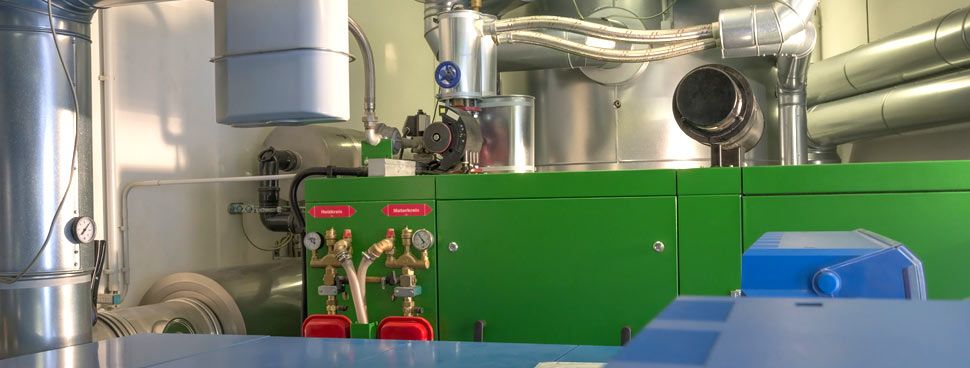
Combined Heat and Power (CHP) Unit
Cost effectiveness depends largely on energy consumption, maintenance and oil change intervals, wear and machine performance.
Mathy is able to positively influence these parameters through improved lubrication.
A hospital in Hamburg, Germany, (Berufsgenossenschaftliches Unfallkrankenhaus) conducted a comparison study on the effects of Mathy on the performance, costs, operating hours, and susceptibility to failure of their CHP unit.
The first year no Mathy was added to the engine oil of the CHP unit, while Mathy was added to the engine oil the second year of the study. Both years periodic oil samples were used to monitor the equipment of the unit and all results of the test were documented.
The results of the study showed that after deducting the cost for the product, the savings during the second year amounted to almost € 33,000 compared to the previous year. The engines ran much quieter and the susceptibility to wear was significantly reduced.
- Extended oil change intervals
- Increased degree of utilization
- Better protection from corrosion
- Possible lubrication and fuel savings
- Cost reduction
The most common problems in CHP units
- Thermal problems
- Combustion residues
- Acid and lye formation
- Great wear
- Acidification
- Bearing damage
- Component breakage
- High sulfur content
- Pressure and temperature peaks
- Condensation
- Short maintenance intervals
- Standstill and downtime
Frequently asked questions and answers
As with all other units, our products decrease friction and thereby reduce the oil temperature and wear. They also keep the units clean from the inside and prevent deposits and coking.
The consumption of fuels and lubricants will be reduced by less friction and wear. Our products lead to shorter downtimes due to the possible prolongation of certain intervals. On the one hand, these are the maintenance intervals that we could at least double in some plants (monitored by oil analyzes). On the other hand, the reduction of wear means a decreased need for spare parts and an extension of intervals for the renewal or revision of aggregates.
If, according to experience, an engine had to be revised every 3 years for € 15,000, this means an average of € 5,000 per year in revision costs which the plant must generate.
If, through the use of our products, this interval is extended to 5 years, these costs will decrease to € 3,000 per year and you will earn an additional € 2,000 annually.
These calculations vary from plant to plant and serves only as an example calculation.
Yes, an extension of the oil-change interval is possible. In order to avoid damages, any extension of the intervals is checked by oil analyzes. This means that, depending on the current interval, we take samples at different points in time and have them checked by a Oelcheck GmbH. This way we determine how the normal interval can be extended. In one of our CHP units we extended the interval, which had previously been 500 hours, to 1,000 hours. In other words, we reduced the number of oil changes from 17 to 8-9 per year. The customer we did his analysis for operates 2 units. In addition to the oil saved, the downtime of the systems significantly reduced.
- Compliance or increase in efficiency
- Less downtime = increased full load hours
- Reduction of repair and spare part costs
- Saving in operation material and lubricants
- Reduction of maintenance and operating costs
- Minimization of CHP care by the operator